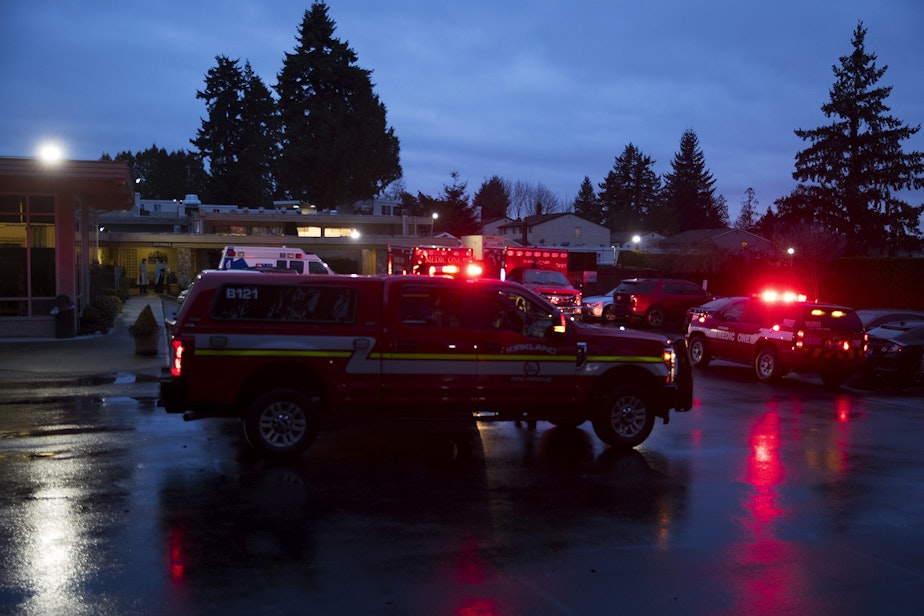How Covid-19 is complicating CPR for some patients

Physicians in Seattle are discussing some of the life saving measures they use and how Covid-19 can complicate them.
Like resuscitation in Covid-19 patients.
Normally, when someone stops breathing or their heart stops, health care workers rush to their bedside and begin cardiopulmonary resuscitation, better known as CPR. There are people doing chest compressions, others trying to place IV lines, and medications may be administered.
But some patients may have a "do not resuscitate" order, known as a DNR, in their file. If that’s the case, they won’t be resuscitated.
Erin Kross is a critical care and pulmonary care doctor based at Harborview Medical Center.
She said they talk to patients and families about what resuscitation looks like and what the outcomes might be so people can make informed decisions. Some older, more frail patients with chronic illnesses for instance may decide they don’t want to be resuscitated.
“Clinicians have an obligation to talk about this early with patients and their families as we’re always striving to make sure we’re providing treatments that are aligned with an individual person’s goals,” Kross said.
Sponsored
She said there are many misconceptions about CPR because of what people see on television and in movies and it’s up to clinicians to make sure people now what CPR can and cannot do.
Kross said things aren’t all that different at the moment. Health care workers are still talking to patients and families and still striving to do all they can when a patient’s heart or breathing stops.
However, she said there are practical considerations that have to be taken into account when a patient with Covid-19 needs CPR.
• Delayed response: CPR works best when it’s initiated immediately. However, people can’t just run into a Covid-19 patient’s room. They have to take the time to put on the appropriate protective equipment and that can delay the response.
• Staff safety: A lot of people are usually involved in resuscitating a patient in a hospital, that increases the number of people in contact with someone who is Covid-19 positive. The process of chest compressions also releases a lot of droplets increasing the risk for people in the room.
Sponsored
• Conservation of protective gear: Hospitals are still trying to conserve personal protective equipment (PPE) and having a lot of people gear up to resuscitate a patient uses a lot of gear.
University of Washington hospitals have developed a policy for emergent medical response for Covid-19 patients. It includes reducing the number of people who go into a room during CPR to essential personnel, roughly eight to 10 people, with others waiting outside.
Christine Mitchell is the executive director of the center for bioethics at Harvard Medical School. She said these are important conversations to have during a pandemic, especially in places that may see a surge and may not have all the critical care resources needed. That’s not a position Washington state hospitals currently face.
She said clinicians still need to exercise clinical judgement, and she doesn’t believe a blanket do-not-resuscitate rule for Covid-19 patients would be a good idea.
In all circumstances, health care workers should think about whether CPR is something the patient wants, Mitchell said.
Sponsored
However, in places without enough resources, other considerations may have to be taken into account.
“What you have to think about in a pandemic where you don’t have adequate resources for everyone is consideration of the likelihood of whether or not the patient is going to survive,” she said.
Patients who are resuscitated will usually end up on a ventilator.
Mitchell said clinicians need to take into account the need, but also the ability to benefit from treatments, to maximize the number of lives saved.




